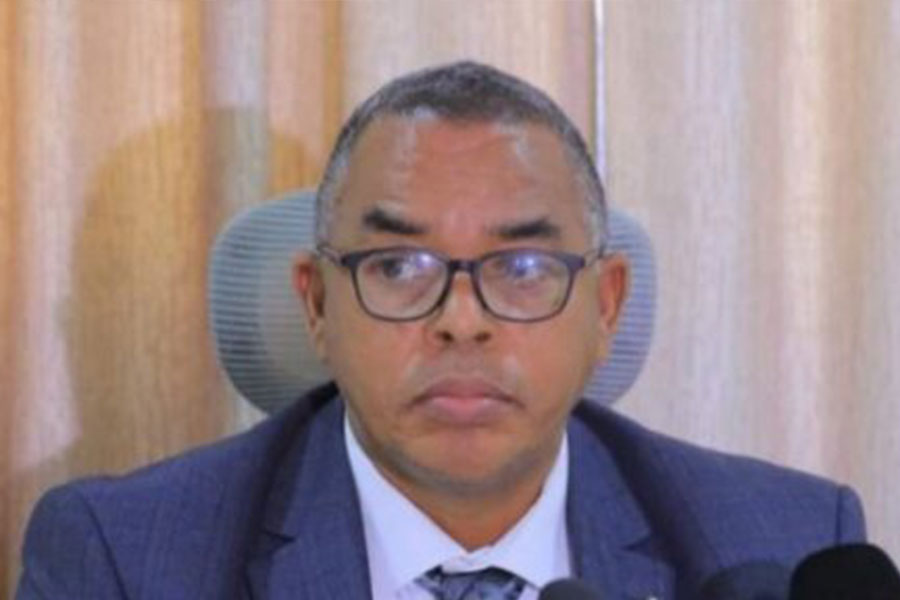
Fortune News | Jul 17,2022
Mar 2 , 2019
By Hintsa Andebrhan
Last month, Prime Minister Abiy Ahmed (PhD) sat down for an interview with the United Kingdom businesses newspaper, Financial Times. It was an illuminating read that allowed a level of insight into the Prime Minister’s vision for the country, the political and economic policies he follows and his thought processes.
Indeed, for all the attention that the article garnered, there was nothing unexpected revealed. The Prime Minister may have been vague about the details of his administration’s economic policies, but he has been an open book about the general direction where he wants to take the country.
The Prime Minister has, arguably, gone further than any that came before to build on his promises. He may not be perfect, and his administration has taken steps that have not been to the liking of a large part of the public. There is also no denying the fact that he does not command the sort of popularity he exhibited when he first came into power. It was evident that such a boisterous honeymoon could not be kept up for too long.
Abiy has nonetheless not digressed from the central tenets of his promise before parliament on the day of his inauguration last year. He had stressed he would work to realise unity, democracy and justice, and the reforms being instituted today, especially in electoral and justice reforms, speak to that endeavour.
Indeed, the continuing lack of direction by his administration is baffling, as the Financial Times found. It is mentioned that he is a capitalist, but there are so many out there that, without deeper analysis, the statement is close to meaningless. The article also quotes an Oxford economics professor, Stefan Dercon, that his historic task would be to complete the economic transformation that the late Prime Minister Meles Zenawi began. It is, of course, a path that no developing nation with a low productivity economy can digress from if there is any hope of growth.
The article was yet another indication that the Prime Minister continues to possess no economic philosophy. But it should be seen as an opportunity in that this is an administration that is open to new and novel ideas.
“On his first day, he says, he ordered an overhaul of his office. In two months, what had been a dark and austere interior became a blindingly white luxury-hotel-style affair, replete with wall-to-wall videoconferencing screens, modern art and sleek white rooms for cabinet meetings and visiting delegations,” read a paragraph detailing a process that offers an insight into the thought-process and philosophising inclination of Abiy.
Such ostentatious projects, including the massive rehabilitation, are in contrast to the kinds of economic and political demands the public is making. The central tenets of his political agenda may be intact, but the lack of uniformity in his party and his inability to articulate an economic policy give way to confusion. They force the public to doubt the sincerity of his political agendas and his leadership capabilities. This is exactly the sort of perception the head of the most powerful office in one of the most precarious nations should not have.
Many continue to believe in the Prime Minister, either because they see a great leader in him or because they do not see any other person commanding the same sort of majoritarian support he has. It is thus all the more important that Abiy confirms to the people that despite never having been given the votes to sit in that Office by the people, he deserves it.
“I will be popular if I lift 60 million to 70 million people out of poverty. If I do that, whether I like it or not, you will magnify my name,” he has said.
These are fantastic goals for any leader to set, but such promises have been heard by the Ethiopian people before. Citizens demand action from their leaders, and it is crucial that Abiy show he is fit for this task.
PUBLISHED ON
Mar 02,2019 [ VOL
19 , NO
983]


Fortune News | Jul 17,2022

Fortune News | Jul 13,2024

Fortune News | Nov 25,2023

Fineline | Apr 06,2019

Agenda | Aug 09,2025

Fortune News | Mar 23,2019

Fineline | May 11,2019

Fineline | Mar 16,2019

Agenda | Mar 21,2020

Life Matters | May 06,2023

Photo Gallery | 177099 Views | May 06,2019

Photo Gallery | 167312 Views | Apr 26,2019

Photo Gallery | 157922 Views | Oct 06,2021

My Opinion | 136960 Views | Aug 14,2021
Commentaries | Oct 25,2025

Dec 22 , 2024 . By TIZITA SHEWAFERAW
Charged with transforming colossal state-owned enterprises into modern and competitiv...

Aug 18 , 2024 . By AKSAH ITALO
Although predictable Yonas Zerihun's job in the ride-hailing service is not immune to...

Jul 28 , 2024 . By TIZITA SHEWAFERAW
Unhabitual, perhaps too many, Samuel Gebreyohannes, 38, used to occasionally enjoy a couple of beers at breakfast. However, he recently swit...

Jul 13 , 2024 . By AKSAH ITALO
Investors who rely on tractors, trucks, and field vehicles for commuting, transporting commodities, and f...

Oct 25 , 2025
The regulatory machinery is on overdrive. In only two years, no fewer than 35 new pro...

Oct 18 , 2025
The political establishment, notably the ruling party and its top brass, has become p...

Oct 11 , 2025
Ladislas Farago, a roving Associated Press (AP) correspondent, arrived in Ethiopia in...

Oct 4 , 2025
Eyob Tekalegn (PhD) had been in the Governor's chair for only weeks when, on Septembe...

Oct 25 , 2025 . By YITBAREK GETACHEW
Officials of the Addis Abeba's Education Bureau have embarked on an ambitious experim...

Oct 26 , 2025 . By YITBAREK GETACHEW
The federal government is making a landmark shift in its investment incentive regime...

Oct 26 , 2025 . By NAHOM AYELE
The National Bank of Ethiopia (NBE) is preparing to issue a directive that will funda...

Oct 26 , 2025 . By SURAFEL MULUGETA
A community of booksellers shadowing the Ethiopian National Theatre has been jolted b...